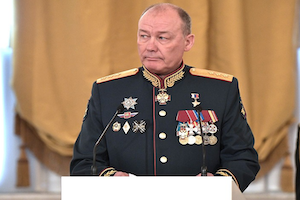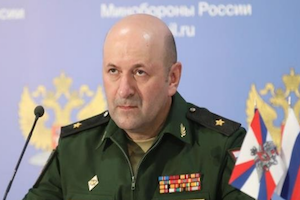Russia's Military Capabilities in the Caspian
By Nurlan Aliyev
February 21, 2019, the CACI Analyst
On December 5, 2018, Colonel-General Alexander Dvornikov, commander of the Southern Military District (SMD), stated that the basis of an inter-forces troop contingent including sea, air and coastal components has been established in Dagestan. According to Dvornikov, fighters of the 4th Army Air Force and the SMD’s Air Defense have been put on alert at one of Dagestan’s airfields. Strengthening its high precision strike capabilities in the Caspian, Russia also intends to improve its ability to block the Basin to outside actors in support of its strategies regarding the Caucasus, Central Asia and the Middle East. The Caspian holds immense strategic value to Russia, given its geographical proximity to the Black Sea and the Sea of Azov.

Wither Afghanistan? The Great Game Takes a New Turn
By Stephen Blank
February 13, 2019, the CACI Analyst
When he announced the withdrawal of U.S. troops from Syria, President Trump also announced the departure of one half (7,000) of America’s troops in Afghanistan. This abrupt decision both damaged the U.S. position in the Middle East and undermined ongoing negotiations with the Taliban over Afghanistan. It upset all the calculations of the Afghan government, leaving it scrambling for a new negotiating and strategic posture, and undid two years of successful albeit modest U.S. policy of renewed economic and political support for Central Asia. This will allow both Beijing and Moscow to respond by extending their influence in Central Asia at America’s expense and to employ their strongest capabilities for doing so.

Thinking Big About Caspian Energy
By Stephen Blank
November 29, 2018, the CACI Analyst
The signing of the Caspian convention in August 2018 has opened up exciting new possibilities for getting Central Asian oil and gas to European and global markets. The long-desired Southern Gas Corridor (SGC) from both shores of the Caspian has thus become a possibility. By thinking big, we can use Caspian gas for beneficial economic and political purposes. Whatever route Caspian energy takes to Europe, it must traverse the Caucasus and can be of substantial value in transforming the Eurasian geopolitical scene and agenda. Specifically, those parties who have the most to gain form resolving the Nagorno-Karabakh conflict can now devise a peace program that incorporates the use of energy to help foster an enduring peace between Armenia and Azerbaijan, reduce Russia’s ability to manipulate this conflict, and at the same time enrich them both as well as European consumers.

Russa's "Biological" Information Operation Against the US and Georgia
By Nurlan Aliyev
November 27, 2018, the CACI Analyst
During a press conference in Moscow on October 4, 2018, Major General Igor Kirillov, commander of Russia’s radiological, chemical and biological defense troops, stated that 73 citizens of Georgia had died as a result of medical experiments conducted by a company owned by former U.S. Secretary of Defense Donald Rumsfeld. He referred to recent accusations from Georgia’s former Minister of State Security Igor Giorgadze, who served in the KGB from the 1970s to the 1990s and holds the title “Honorary Officer of the KGB of the USSR.” Kirillov’s statement coincided with allegations from the UK and the Netherlands that Russian spies attempted to hack the Organisation for the Prohibition of Chemical Weapons (OPCW) in The Hague.

Discontent with Kadyrov Leads to Increased Violence in Chechnya
By Emil A. Souleimanov and Huseyn Aliyev
October 23, 2018, the CACI Analyst
On August 20, a series of attacks by teenagers against policemen took place in Chechnya’s cities of Grozny and Shali. The country’s strongman Ramzan Kadyrov quickly blamed “external actors” seeking to pitch local security enforcement, siloviki, against teenagers, while decrying the inability of the attackers’ parents to oversee their sons. Yet realities on the ground appears to be different. In fact, large part of the Chechen population hold enormous grievances caused by the impunity of local siloviki, particularly kadyrovtsy, and the republican authorities in general. The threat of punishment against the relatives of insurgents and their (prospective) supporters has since the early 2000s stemmed the local insurgency. Yet from time to time, grievances condensed in the Chechen population explode in spontaneous acts of nearly-suicidal violence against republican law enforcement.



